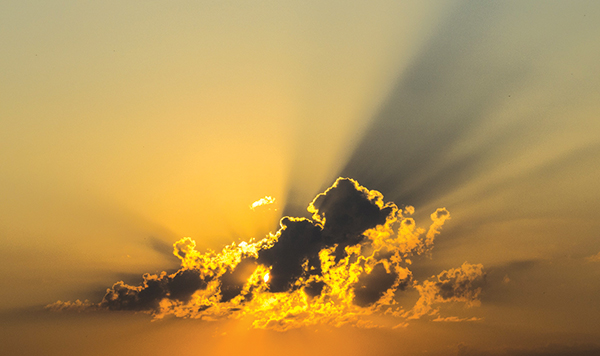Wynne C

I am sure most of us are aware of the impact the coronavirus pandemic has had on our nation. We are seeing a rise in the number of cases, death toll and closure of restaurants and businesses. As a result of social distancing and self-isolation, the streets of once busy cities currently look straight out of a ghost town. Many people face being furloughed and some even laid off. Healthcare workers are forced to live apart from their loved ones to prevent the spread of infection to vulnerable members of the family. Schools have closed and children of domestic abuse remain in their homes where violence goes more frequently unreported and unchecked. The elderly who live alone struggle to shop for groceries when supermarket shelves are being swept clean by the younger generation who have the ability to “panic buy”.
As a doctor working in the Emergency Department, I have seen my fair share of the sad reality of humanity. I work in an area with an ageing population, so the bulk of patients we see are elderly. In this current season of social distancing and self-isolation, I have noticed more elderly people coming into hospital after being on the floor for hours or even days before being found by a carer, neighbour or family. Many of them need to be isolated on the ward due to having symptoms suggestive of a coronavirus infection. This means that at their weakest and most vulnerable, they are being told they are not able to have their loved ones by their side. As if that conversation is not difficult enough, the phone call we make to their next of kin explaining that their loved ones are very unwell and may not make it but are not allowed visitors can be totally heart wrenching.
Amidst all the doom and gloom we personally encounter or read in the news, there is some light in the darkness.
The national “Clap For Carers” movement is extremely moving. People across the country are cheering, clapping, banging pots and pans and playing drums and bagpipes at 8pm every Thursday as tribute to key workers such as NHS staff, health and social care workers, delivery drivers, supermarket staff and bin collectors. This simple gesture of appreciation goes a long way in keeping morale up as key workers continue to plough on to maintain some level of normalcy for our society. Over 400,000 people have joined the NHS army of volunteers in one day, offering to deliver medicines from pharmacies, driving patients to appointments, bringing patients home from hospital or making regular phone calls to check on people isolating at home. I also read a story in the news about the public allowing a paramedic in a supermarket in Norfolk to cut the queue and a stranger even paying for his groceries. These kinds of stories were almost unheard of before the coronavirus pandemic but goes to show that we as a society are capable of showing more kindness and appreciation to those around us.
Parents who are working from home are able to spend more time with their children baking, doing homework, reading and even using technology creatively by making the ever popular TikTok videos together. Couples are spending more time together gardening, cooking and just enjoying each other’s presence at a time of day where they would otherwise be out at work. Friends who have not spoken in years are catching up more over the Internet.
On a more personal level, I struggle at times to make it to the supermarket to buy groceries due to my work rota in the Emergency Department. When I do get time to go, the supermarket is mostly out of essential items such as meat, eggs, milk and toilet paper. The “panic buying” phenomenon does not only affect the elderly but also NHS staff who work unsociable hours. A friend noticed and offered to do a grocery run for me, for which I was extremely grateful. Having a fully stocked fridge never felt so satisfying! I also learnt that in a time of need, it’s the little things in life we tend to overlook that mean the most.
The coronavirus pandemic has taken so much away from us as a society. Yet, at the same time we are living in a very special time we will likely never experience again. We are given permission to be still at home, free time to spend with families and a chance to slow down and notice those around us who need help and kindness.
I would like to share parts of a beautiful poem an Irish priest Richard Hendrick penned in the midst of lockdown:
“Yes there is fear. Yes there is isolation. Yes there is panic buying. Yes there is sickness. Yes there is even death.
But, (…) All over the world people are slowing down and reflecting. All over the world people are looking at their neighbours in a new way. All over the world people are waking up to a new reality to how big we really are. To how little control we really have. To what really matters. To Love.
So we pray and we remember that yes there is fear. But there does not have to be hate. Yes there is isolation. But there does not have to be loneliness. Yes there is panic buying. But there does not have to be meanness. Yes there is sickness. But there does not have to be disease of the soul. Yes there is even death. But there can always be a rebirth of love.
Wake to the choices you make as to how to live now. Today, breathe(…)”